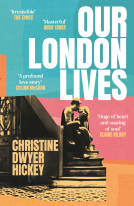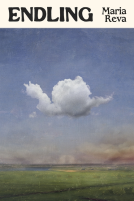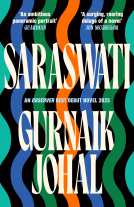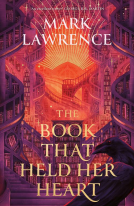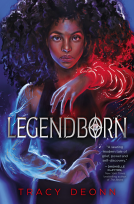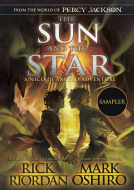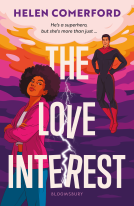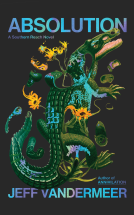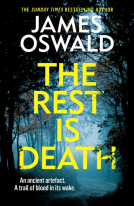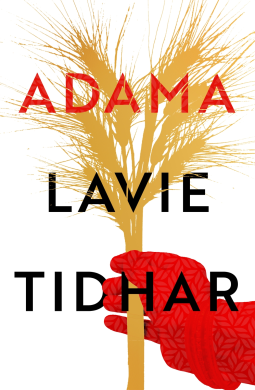
Adama
by Lavie Tidhar
This title was previously available on NetGalley and is now archived.
Send NetGalley books directly to your Kindle or Kindle app
1
To read on a Kindle or Kindle app, please add kindle@netgalley.com as an approved email address to receive files in your Amazon account. Click here for step-by-step instructions.
2
Also find your Kindle email address within your Amazon account, and enter it here.
Pub Date 14 Sep 2023 | Archive Date 28 Sep 2023
Head of Zeus | Apollo
Talking about this book? Use #Adama #NetGalley. More hashtag tips!
Description
There is no adama without dam.
In 1946, a young Ruth begins building a new life in Palestine, haunted by the death of her family in Europe and driven by youthful ideals in a land hostile to her presence. Her sister, Shoshana, survives in the Displaced Persons camps of Germany and joins her in Palestine, but dreams of escaping to distant America.
Her lovers, Dov and Israel, die in war, and her children try to serve the land Ruth bled for, only to find their own tragic ends or means of escape. As one generation begets another, their lives become entwined into a dark tapestry of secrets and lies, of revenge, forbidden love and murder.
A sweeping historical epic following four generations of a single family as they struggle to hold on to their land and each other.
Available Editions
| EDITION | Ebook |
| ISBN | 9781804543443 |
| PRICE | £7.99 (GBP) |
| PAGES | 512 |
Available on NetGalley
Featured Reviews
 Clare G, Book Trade Professional
Clare G, Book Trade Professional
Maror was one of my favourite books of last year so I'm not surprised at all that I loved Adama. Lavie Tidhar is something of a genius: he takes handfuls of threads, seemingly unconnected, and weaves them into a rich, colourful, textured tapestry.
I'm not normally one for historical fiction but the approach of Adama to the Jewish history of the twentieth century is very much not the well-trodden one. There has been a lot written about World War Two and the Holocaust (for good reason) but very little of what came after. I knew next to nothing about the creation of the State of Israel and the very troubled times that came with it, but Tidhar clearly knows his history well and makes it vivid. By connecting it to the (almost) present day through the novel's various timelines, it's impossible for readers not to feel the repercussions as they still resound.
The prose is distinct -- punchy and razor-sharp, withholding nothing for sentimentality's sake -- and although pretty much every character engages in some kind of awful behaviour (albeit to varying degrees and with varying motivations), they're painted so richly that you can't help but to root for them. Where Maror was largely a novel about the dirty work done by a people for the greater good, Adama relates the great individual sacrifices we must make (or tell ourselves we must make) to secure our future.
I've recommended Maror to a lot of friends; I'll definitely be recommending Adama too.
Exciting developments ahead as I find myself caught up in a captivating literary journey! I am thrilled to share that @headofzeus has extended an invitation for me to partake in a remarkable book tour.
It's important to note that both books touch on challenging subjects, necessitating a content warning for sensitive topics such as Death, Terrorism, Sex Work, Anti-Semitism, Racism, and Crime.
"How do you build a nation?" This question resonates deeply as it calls for an intricate interplay of statesmen, soldiers, farmers, factory workers, and intriguingly, even thieves, prostitutes, and policemen. Such nation-building entails sacrifices that one man, Cohen, fully comprehends—his love for the country makes him a reasonable man in unreasonable times.
The narrative takes us on a gripping journey through car bombings in Tel Aviv, diamond robberies in Haifa, civil wars in Lebanon, rebel fighters in the Colombian jungle, and a double murder in Los Angeles. The intriguing connections between these seemingly disparate events remain a secret only Cohen holds.
These two books are part of an enthralling trilogy, yet they can also stand alone, each chronicling the birth and growth of the State of Israel. The first book, Maror, already acclaimed as a Guardian and Economist Book of the Year, paved the way for the eagerly awaited second instalment, Adama.
Prepare to be immersed in a sweeping historical epic, following the lives of four generations of a single family as they fight to preserve their land and their bonds.
The book cover is eye-catching and appealing and would spark my interest if in a bookshop. Thank you to the author, publisher and Netgalley for this ARC.
 Dmitry P, Reviewer
Dmitry P, Reviewer
This is the second literary fiction book from Lavie Tidhar that I read. Similarly to the exceptionally good Maror, Adama also tells the story of Israel, but now from a different perspective. The book follows the story of a family, and their matriarch Ruth. The story spans ~60 years, starting before the second world war, when Ruth decides to leave her family and emigrate to Palestine, helping establish what will eventually become the state of Israel, and ending with the mid-90s, at the end of Ruth's life. We meet Ruth's family, friends, enemies, children, and grandchildren. What unites all is their connection to Ruth, and the choices they make in light of her dedication to the land of Israel ("Adama" means ground/land in Hebrew), and the kibbutz she has helped establish in the 30s. The episodes can probably be split into two sets - stories of sacrifice (and sometimes extreme sacrifice) by the protagonists in support of their ideals, and stories of people who chose to turn their backs on these ideals and pursue their own paths to happiness.
This latter point is, in my view, the main axis of the entire narrative (and the meta-narrative). The question is what can and should one sacrifice for the idea of a group of people having their own land (whether state, or kibbutz). While this question could have been dealt with simplistically, showing the cruelty and horror such abject dedication to an idea can give rise to, the author, instead, shows also the psychological and social underpinnings that, for some, necessitate this dedication. In this way, the book is perhaps among the best and nuanced assessments of the main tension in Israeli society and politics, and explains, through a microcosm of one kibbutz, what drives some of the most horrific, as well as some of the most heroic, acts by Israel then and today.
Beyond the topic and relevance of the ideas in the book, it is also exceptionally well written, by the ever talented Tidhar. The pacing is intense and never lets go. Many of the episodes are written like short thrillers, that have their own mini narrative arcs, creating a perpetual need to read more and more. The characters are also vivid, fragile, multi dimensional, and rich in their emotional depth. Even Ruth comes across so real that you don't have a choice but understand her and end up rooting for her.
Finally, as with Maror, the book is incredibly well researched, and shows an author trying to portray the reality of what he is describing, while also making it accessible and palatable for contemporary readers. This latter point also differentiates it, in my view, from Maror. While I loved Maror, I found it to be perhaps difficult to fully comprehend for those not intimately familiar with the history of the Israel's criminal underbelly. Unlike Maror, Adama, in my view, requires no prior knowledge (other than the basics of Israel's statehood), and can be enjoyed very broadly. As with Maror, I also liked the fact that, after all, the author does not take an overt political stance, but rather tries to describe the complexities of the situation, showing what drives the various behaviours, and how they justify these for themselves. It's bold, and insightful.
Overall, I highly recommend it to anyone interested in Israel, especially these days (2023), with a lot of the issues that are embedded in this book overtly present in day to day political discourse surrounding the future of Israeli democracy. The author also keeps moving from strength to strength.
My thanks to Netgalley and the publisher for providing me with an early copy of this book in return for an honest review.
 Viv R, Reviewer
Viv R, Reviewer
Having really enjoyed Maror last year I was excited to read the new novel Adana fro. Lavie Tidhar. I was not disappointed. Yet again this is an exceptionally well researched historical book about Israel. I learnt so much information about this intriguing and complicated history. Highly recommended.
 Reviewer 832068
Reviewer 832068
“You didn’t say I love you. You could say you loved your country, you could say you loved your country, you could say you loved this land, this fucking Adam that people bled on, died for, killed for, just so you could have a home, a land to call your own. You could love this land. A girl could say she loved you, if you were going to war and you’d already knocked her up. Most of the songs were about that. But you couldn’t say I love you to the old woman sitting with a vacant stare in the armchair beside you, slowly forgetting your name”.
TW: violence, death, rape, racism.
Adama is everything. I was already aware of Lavie Tidhar’s writing and anthology curation skills but this book has cemented him as a firm fave.
This quite frankly harrowing tale shares the story of the creation of the state of Israel from the Jewish perspective, following the Jewish citizens seeking asylum in the disputed land during the time of the Holocaust and as they attempted to overthrow the British occupation. The retelling of the mass asylum efforts of Jewish people is laced with the realities faced - for the few, they were welcomed into the communal living kibbutzes where they took on back-breaking work to prepare the land. But for the majority, as their boats landed onto the shore, they fell victim to their surroundings - either farmed into refugee camps ruled by the British who would eventually send them back to Europe, or ‘saved’ by pimps who would put them to work with little chance to escape. Tidhar paints a realistic picture though, addressing how those who settled into life in the kibbutz would take on responsibility for both their community and the newly-forming state as a whole, putting themselves and their own needs last. I have never in my life seen this side of events discussed and it was everything.
“Shosh too, wanted a baby. It didn’t even matter who it was from. Just to give new life, for all the life that was lost. Just to say to the Nazis, you could not kill us all, and now we’re here, and we are still alive”.
Tidhar takes no sides on the politically charged topic, presenting the strengths and weaknesses of both sides arguments, ensuring the reader knows that no one was a winner during these years. The protagonist, Ruth, is the perfect example of someone who went above and beyond in sacrificing herself and her family for the ‘greater good’, only to be left with something that doesn’t reflect her efforts.
“If there was one thing she had learned back in the camp is that you had to survive by any means. Rules? Law? Those were polite fictions, fairytales she might have believed in once. Not anymore."
The tale masterfully flits between present day and the past to hit three generations of Jewish settlers trading one horror for another, revealing at the most opportune moments how each character is connected and with some of the messiest ties possible. Characters are so fully fleshed out that I flip-flopped consistently on where I stood with them - did I like them? Did I hate them? Did I understand that they were truly just the product of their circumstance and became nothing more than pawns in a reality much bigger than them? All three are true. Ultimately, have your tissues ready as the reader because the intergenerational trauma runs thick throughout and the levels of deceit and loss are almost impalpable. I have seen first hand the level of nationalism required to build a state on the blood of your loved ones and the toll that takes on the foundations of everything you stand for.
“You must speak Hebrew now, Ruth wanted to telll them. You speak the old language of exile, when you must learn the new tongue of rebirth. But her heart wasn’t in it, not then, and she did not know where these women would end up and how their lives would be, only that they would not be easy”.
Thank you SO much Head of Zeus for the Proof - as a Jewish woman with personal ties to this history (for better or for worse), this was the first novel tied to the Holocaust I both wanted to read and actually learnt from. I recommend this to all. I’m now eagerly awaiting passing this onto my family members to see if they cry as much as I did.
After the superb Maror, which took us into the Israeli criminal underworld in particularly bloody and brutal fashion, Lavie Tidhar returns with a new book. Adama. This time, through the prism of a kibbutz family, Tahir exposes the faultlines that run through Israeli society, in a cross generational epic which again contains multititudes. This is another expansive epic, and another triumph. If you loved Maror, this will be right up your street. If you've yet to start with Tahir, this is a fine a place as any. Though there are minor crossovers and textual links between this and Maror, you do not have to have read that book first. And if you start here, you will want to read Maror afterwards anyway! Fabulous stuff.
Thank you to Netgalley and the publishers for the ARC.
 Reviewer 794565
Reviewer 794565
This is the story of Ruth, who leaves Hungary in the second world war and goes to live on a kibbutz in Israel. It covers her family, both in Hungary and Israel, and their lives, and also the history of the formation of Israel, and the changes to the kibbutz communities. It was a hard and sad life for everybody with a lot of challenges, and the book depicts this well. An interesting cast of characters, and a well-written story. Recommended.
I'm currently obsessed with Lavie Tidhar. He has such a range of styles and moods as an author. This book is epic, nation-building historical fiction. It is unremitting and bleak, a book about sacrifice and community. Like the equally dark and epic Maror this does not stick to a linear narrative structure. It also has (at least) six main characters, and at one point it felt more like a series of linked novellas than a cohesive book. But it all comes together in the end, an ending that broke my heart, and I'm not sure if it put it back together afterwards.
Thanks to NetGalley and Head of Zeus publishing for the eARC of this book in exchange for an honest review.
I'm grateful to the publisher for sending me an advance copy of Adama to consider for review.
Following last year's Maror, and with some of the same characters and events referenced, Adama is another part of Lavie Tidhar's examination of the history of modern Israel. I'm impressed by just how productive Tidhar is - he's also exploring the mythological roots of England, having worked through Arthurian mythology and Robin Hood. Israel/ Palestine, it might be argued, has less mythology and more history to it, and certainly Maror/ Adama aren't fantastical in the way that By Force Alone and The Hood are, but I'd argue that decomposing mythology is EXACTLY what he is about here too. And he does it very effectively.
Adama is loosely focussed on Kibbutz Trashim, and we follow its history through the lives of several generations of members, beginning with Ruth in the years just before the founding of Israel and witnessing the country's birth in war and its development, alongside that of the community. The story is bookended by the death of Ruth's daughter, Esther, in Florida in the early 2000s and the discovery of heirlooms - photographs, trinkets - by her daughter Hanna. Hanna has no idea of their context or identity, although we will learn more in the course of the book. I did find this discovery of bits of a mother's life a powerful theme - my own mother died a few months ago and I so relate to this experience, this realisation that there was much one didn't know, and that now it's too late.
Ruth was, it becomes clear, an idealist, who travelled to Palestine to be part of the founding of her nation. And if that founding requires sacrifice, or casualties, whether Ruth's comrades, the kibbutz's Arab neighbours, or British soldiers, well. Ruth is later joined by her sister Shosh, who survived the Holocaust: for Shosh, Trashim - and Israel - are less a yearned for destination than a necessary (and perhaps temporary) refuge. This tension between those who belong - or want to belong - and those who want more, is a recurring theme, one that also runs through the kibbutz's generations of children. It's a sad theme, and time and again people are lost - they die, they vanish, they just leave. There's a stripping away across the generations with the communal life of the kibbutz repelling some and the hard-won community itself mutating into something its founders might not recognise.
Adama is not a book for the squeamish. It features the removal or killing of the kibbutz's Arab neighbours. It features war, with its attendant atrocities. In the later years, crime gangs feature: and like Maror, there's an issue about where they end, and where organs of the State begin. And, of course, it features scenes from and immediately after the Holocaust itself. Indeed another recurring motif is the camp - whether the Nazi extermination camps, the camps which housed displaced persons after the war, those established by the British for the Jews trying to reach Palestine, or - perhaps - later, Trashim itself and by extension, the entire country.
The scenes featuring refugees on leaky boats trying to cross the Mediterranean can't fail, I think, to evoke those now fleeing from South to North in the same waters - as can those where we see the Jewish inmates of the British camps in Palestine being deported to Cyprus. How little the world seems to have learned.
But the book isn't at all despairing. Told in fifteen parts, some of them fairly lengthy, self-contained (but linked) stories, as with the Hollywood film made on location in the fifties, often referenced after; some of them little vignettes - a group of children running away to find the sea, two mothers chatting and smoking outside the communal nursery while they wait to see their kids - Adama is like a tapestry, each new piece adding something to all the rest, giving us a gallery of believable characters and a host of storylines, some fully explored, some merely hinted at. And yes, as often in Tidhar's writing there are overtones in some of this of noir and references to pulp fiction including to stories of a 1940s Jewish detective.
For a book which is not in any sense a doorstop, Tidhar manages to pack Adama with so much. It teems with history, with life, with joy and sorrow, music and love, revenge, heartbreak, above all perhaps with that inevitable, universal process of losing by which what was dear and familiar to one generation becomes marginal to the second and incomprehensible to the third.
Overall an absorbing, thought-provoking book.
 b j, Educator
b j, Educator
I found this to be a moving, engaging yet brutal story. From Ruth as a young person losing her parents and sibling to the Nazis, moving to Israel and becoming a key member of a kibbutz . What she did to survive and what she did to forward the role of the kibbutz was both fascinating and fairly horrific. A fascinating glimpse into history and illuminating the decline of the idealistic communal way of life A terrific read
 Lucille G, Reviewer
Lucille G, Reviewer
I was delighted to be able to read and review Adama after enjoying Maror, the first book in this series of the creation and building of a nation, 20th century Israel, and this book did not disappoint. Here we find Ruth, a pioneer and the matriarch of a family whose roots are in the kibbutz she helped to found before WW2. The story spans her life up until the present day. The book reads like a series of short stories all linking to Ruth and covers the sacrifices people make in following their ideals as well as how they also follow their chosen paths to happiness. As with Maror, Lavie Tidhar doesn't shie away from the difficult issues that continue to mark the lives of everyday Israelis. I can't wait for the final book in the trilogy. Highly recommended read. Many thanks to NetGalley and Head of Zeus.
Readers who liked this book also liked:
Rick Riordan; Mark Oshiro
Children's Fiction, LGBTQIA, Teens & YA
Keith Martin; Konstantinos Mersinas; Guido Schmitz; Jassim Happa
Business, Leadership, Finance, Computers & Technology, Reference

